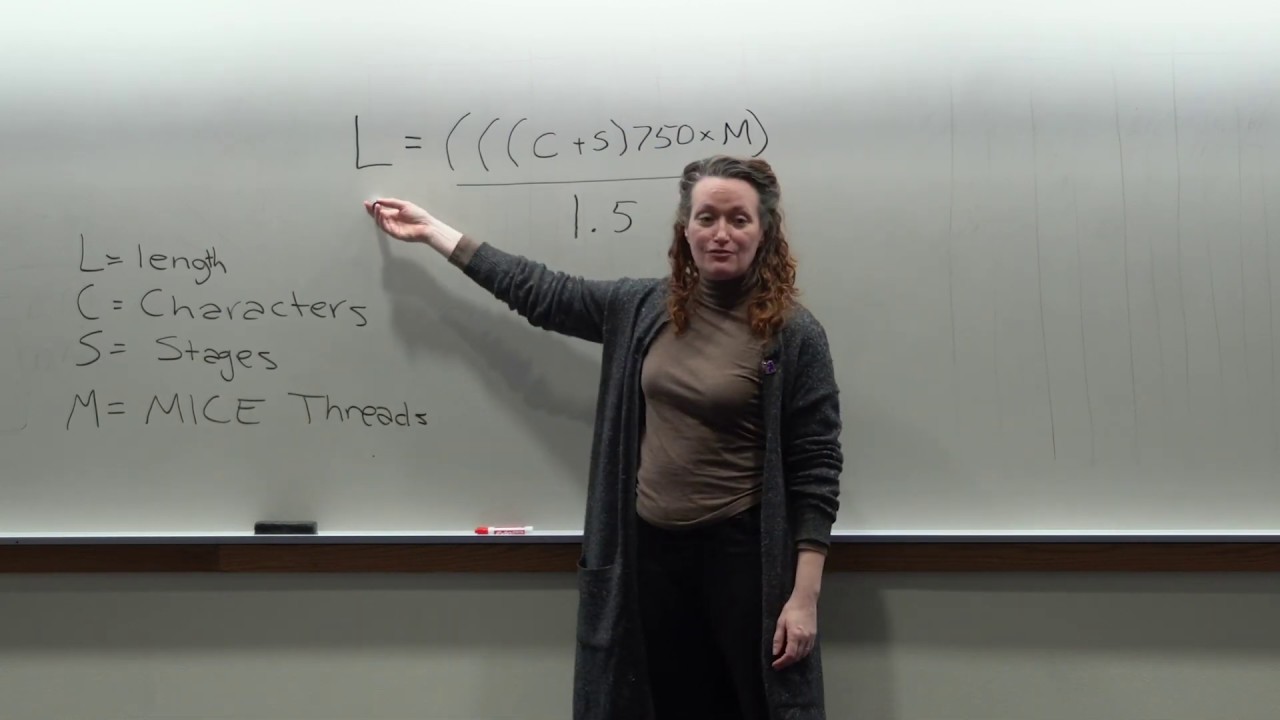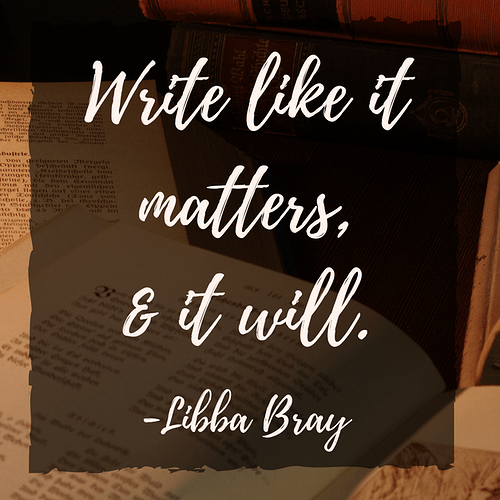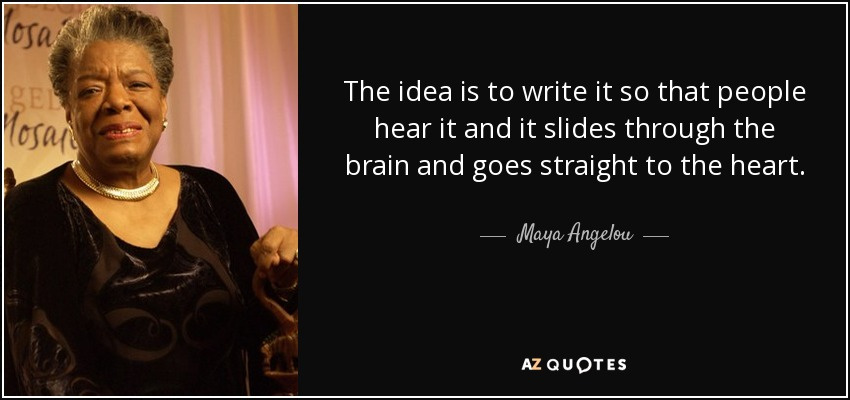Using Dragon Naturally Speaking for dictating first drafts. (Some people use it for all of their drafts.)
The best piece of writing advice I’ve ever heard is, “Don’t try to be original.”
The more I write, the more true it becomes. When I started the novel I just finished, I was trying very hard to be original, and ended up sounding like everyone else. When I stopped trying to be original and just wrote about the things that mattered most to me, my story changed into something truly original, but not because I tried to make it that way.
Here is the link to her guest lecture in Brandon Sanderson’s BYU class. It is titled for short stories but as she explains it is very much scalable to novel length stories.
A corollary to this one I have come across was attributed to Blake Snyder’s Save the Cat. I don’t have the exact quote handy but it was something along the lines of you cannot be original unless you know what already exists.
Other related advice, has given me the impression that the goal is not necessarily to be entirely original but to know what exists, how the expectations for it work and then twist them a little so that you retain some of the familiarity that resonates comfortably with readers but gives them something new, as well.
@Danielw, sorry for the @mention here. I am performing a badge test on locked and unlocked categories using you as my guinea pig. Since I have your attention, in my topic above, would it have been appropriate to just have shared the link instead of prompting for interest?
Thank you for participating in my test.
Mention badge was granted for this post so I do think something about a category being locked to new topics prevents badges triggering.
I really like the question: What’s the worst thing that can happen next? For writing and editing.
If you’re asking about rules / conventions of this community — I think sharing the link would have been better. But I liked your summary, too.
— Let me edit the Self-promotion rules to make that clear.
I’m going to link this other post I wrote in the Escaping the Plot Forest Summit topic because I think part of the post applies here.
I’ve read a fair amount of ‘generic’ advice about Character Arcs and internal conflict but, like a lot of writing advice, the aspiring author is frequently left to figure out how to go about that on their own. I think Kris’ suggested method of asking your character what they are thankful for at different points in their story really helps a writer get to the heart of what is changing for the character. I love finding these mindset tips and techniques that feel so practical and actionable compared to the higher level concept they work toward achieving. One might say, I’m thankful for them!
Just recently posted this on my Instagram account. It is a basic precept that I hopefully use to guide all of my writing. For me, it is far more than a slogan. It is what (the writing) life should be all about.
Bumping out a certain number of words per day. I did manage drafts of two novels by forcing out 800 words daily. Needless to say, both will go through (have already gone through) many drafts, but I do have something to work with.
Thank you for this post. I enjoyed reading about this and did a Google search to find more info. Here’s a link for an overview of the nesting concept: Short Fiction, MICE Quotient, and Nesting Codes - Wendy Barron Editorial Services. At the end of the article is another reference for a podcast from Writing Excuses. The short podcast gives an overview of MICE and then they did was a brief “rewrite” of a story using each element. Thanks again!
Late to the party? … Really helpful posts above. I would only add this little gem from a writing professor at Aberystwyth University — ‘It’s got to be a good read.’ … which I think applies to all writing!
There’s another one I’ve been really thinking about a lot lately in regards to the YA novel I’m writing.
“Write every scene so it could be someone’s favorite.” - Brandon Sanderson.
That has helped me tremendously with this project–and with writing in general. Usually, toward the middle or end of a scene I stop and ask myself, “Did I write this so someone could consider it their favorite scene?” If the answer’s no, then I know I have more work to do.
Show don’t tell, is the best advice I’ve been given.
Thanks for the link. The concept was discussed on the “Writing Excuses” podcast, episode 16.40 (4 Oct): Nesting Threads in the M.I.C.E. Quotient. Which is great to listen to, but I like visuals too, so your link will be interesting to watch.
Koval’s guest lecture was a really useful addition to Sanderson’s online course.
Not a huge fan of his books myself, I do think he’s a really effective writing coach.
The 3 P’s: Promises, Progress, Payoff’s (Sanderson).
It’s changed how I edit drafts completely.
they also did a detailed explanation of it all in the latest Writing Excuses podcas,. starting at s16.35 and going through to S16.42



